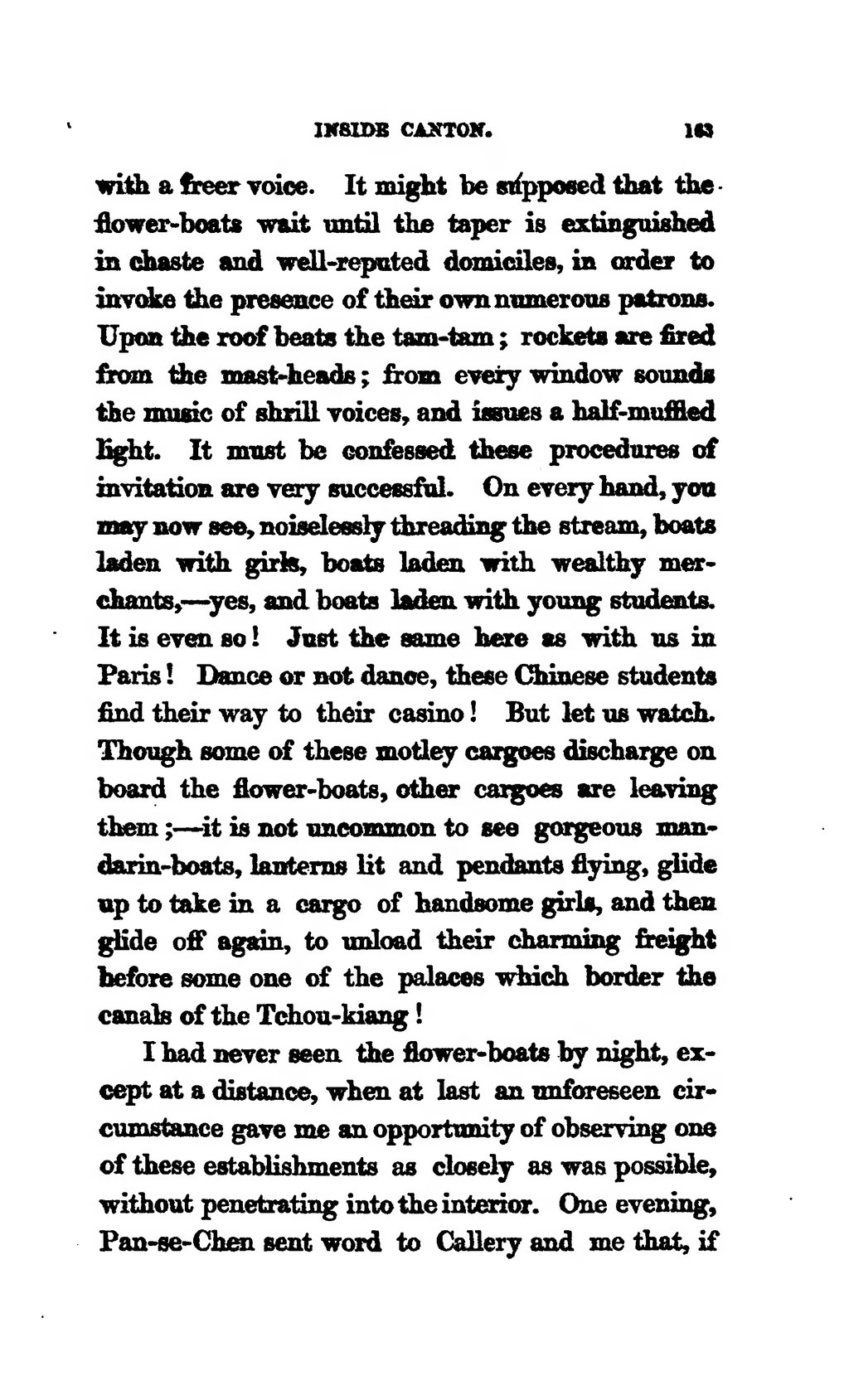with a freer voice. It might be supposed that the flower-boats wait until the taper is extinguished in chaste and well-reputed domiciles, in order to invoke the presence of their own numerous patrons. Upon the roof beats the tam-tam; rockets are fired from the mast-heads; from every window sounds the music of shrill voices, and issues a half-muffled light. It must be confessed these procedures of invitation are very successful. On every hand, you may now see, noiselessly threading the stream, boats laden with girls, boats laden with wealthy merchants,—yes, and boats laden with young students. It is even so! Just the same here as with us in Paris! Dance or not dance, these Chinese students find their way to their casino! But let us watch. Though some of these motley cargoes discharge on board the flower-boats, other cargoes are leaving them;—it is not uncommon to see gorgeous mandarin-boats, lanterns lit and pendants flying, glide up to take in a cargo of handsome girls, and then glide off again, to unload their charming freight before some one of the palaces which border the canals of the Tchou-kiang!
I had never seen the flower-boats by night, except at a distance, when at last an unforeseen circumstance gave me an opportunity of observing one of these establishments as closely as was possible, without penetrating into the interior. One evening, Pan-se-Chen sent word to Callery and me that, if

